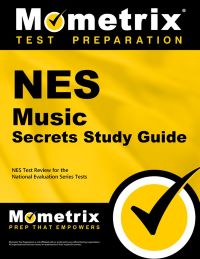NES Music Exam: A Comprehensive Guide
The NES (National Evaluation Series) Music Exam is a standardized test designed to assess the knowledge and skills of individuals aspiring to become music educators. This exam is a critical component for those seeking certification or licensure to teach music in various educational settings. Understanding the structure, content, and requirements of the NES Music Exam is essential for success. This article provides an in-depth overview of the exam, including eligibility criteria, syllabus, and format.
Eligibility
To be eligible to take the NES Music Exam, candidates must typically meet certain educational and professional prerequisites. While specific requirements may vary by state or institution, the general eligibility criteria include:
- Educational Background: Candidates should possess at least a bachelor's degree in music or a related field from an accredited institution. Some states may allow candidates who are in the final stages of their degree program to take the exam.
- Teaching Aspiration: The exam is primarily intended for individuals seeking to become certified music educators at the K-12 level. Therefore, candidates should have a genuine interest in teaching music.
- State-Specific Requirements: Some states may have additional requirements, such as completing a teacher preparation program or obtaining a certain number of credit hours in music education. It is crucial for candidates to check with their state's education department for specific eligibility criteria.
Syllabus
The NES Music Exam covers a wide range of topics to ensure that candidates have a comprehensive understanding of music theory, history, pedagogy, and performance. The syllabus is designed to evaluate both theoretical knowledge and practical skills. Key areas of focus include:
- Music Theory and Composition: Candidates should be well-versed in the fundamentals of music theory, including notation, scales, chords, rhythm, and harmony. They should also understand compositional techniques and be able to analyze musical scores.
- Music History and Literature: The exam assesses candidates' knowledge of Western and non-Western music history, including major composers, historical periods, and significant works. Candidates should be familiar with a diverse range of musical genres and styles.
- Performance Skills: While the exam does not require a live performance, candidates should demonstrate an understanding of performance practices, techniques, and interpretation. This includes knowledge of various musical instruments and vocal techniques.
- Music Pedagogy: Candidates are expected to have a strong foundation in music education principles and methods. This includes lesson planning, instructional strategies, assessment techniques, and classroom management skills specific to music education.
- Aural Skills and Sight Reading: The ability to accurately identify and notate musical elements by ear is crucial. Candidates should also be proficient in sight-reading musical scores.
Format of the Exam
The NES Music Exam is typically administered as a computer-based test (CBT) and consists of multiple-choice questions. The exam is designed to assess both breadth and depth of knowledge in music education. Here is an overview of the exam format:
- Number of Questions: The exam generally consists of approximately 150 multiple-choice questions. These questions are designed to evaluate candidates' understanding of music theory, history, pedagogy, and performance.
- Time Limit: Candidates are usually given a total of 3 hours to complete the exam. It is important to manage time effectively to ensure that all questions are answered within the allotted time.
- Question Types: The exam includes a variety of question formats, such as single-answer multiple-choice, multiple-answer multiple-choice, and questions based on musical excerpts or scores. Some questions may require candidates to analyze audio clips or musical notations.
- Scoring: The NES Music Exam is scored on a scale of 100 to 300, with a passing score typically set at 220. Scores are based on the number of correct answers, and there is no penalty for incorrect responses. Candidates receive a detailed score report that highlights their performance in different content areas.
- Test Administration: The exam is offered year-round at designated testing centers across the United States. Candidates can schedule their exam appointment online and choose a convenient test date and location.
Conclusion
The NES Music Exam is a crucial step for aspiring music educators seeking certification or licensure. By understanding the eligibility criteria, syllabus, and exam format, candidates can better prepare for success. A thorough study of music theory, history, pedagogy, and performance, combined with effective test-taking strategies, will enhance candidates' chances of achieving a passing score. As the field of music education continues to evolve, the NES Music Exam remains a vital tool in ensuring that educators possess the necessary knowledge and skills to inspire and educate the next generation of musicians.
NES Music Exam Study Guide
A Complete NES Music Exam Study Guide that includes sample questions, test tips and a complete study plan prepared by a team of expert and dedicated researchers. Cost-effective and qualified exam help from a committed exam preparation company.
NES Music Study Guide (printed book)

